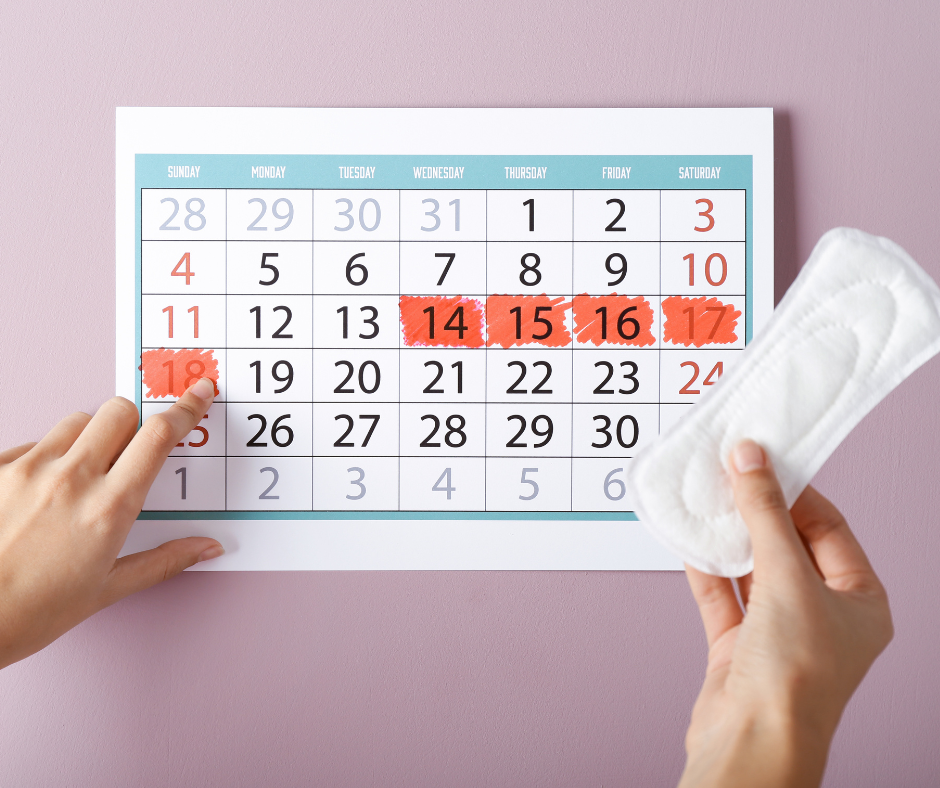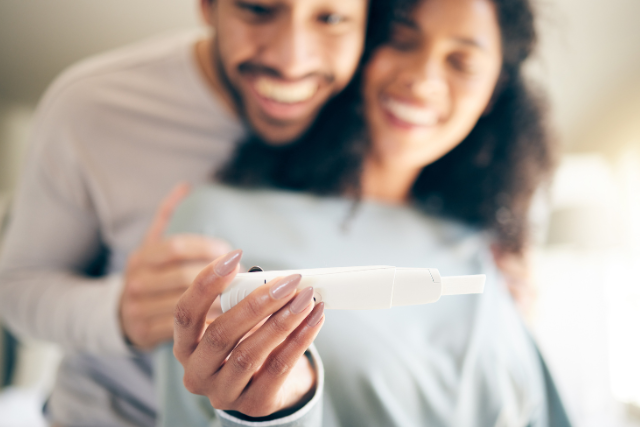Answers About a Period and Fertility
“When was your last period? How long did it last?” These seemingly routine questions at a doctor’s appointment hold vital clues about your period and fertility for your specialist.
That’s because your menstrual cycle revolves around ovulation, the release of a mature egg from an ovary. Without ovulation, you can’t get pregnant. Problems with ovulation can make getting pregnant more difficult. So, what does your menstrual cycle tell your doctor about your fertility? First, let’s look at a normal menstrual cycle.
A normal menstrual cycle can range between 21 to 35 days. The cycle begins with the first day of your period, initiating the follicular phase. During this stage, follicle stimulating hormone (FSH) is released from the pituitary gland (located in the brain) to begin the process of developing a follicle. A follicle is a fluid-filled structure that contains an egg. As the follicle grows, the egg matures and releases estrogen. The length of time it takes to grow a mature egg can vary from about 10 to 20 days depending on the person. Once the estrogen level peaks, it signals the brain to release Luteinizing Hormone (LH). The surge in LH tells the ovary to release the egg from the follicle. The egg then enters the Fallopian tube where it is available to be fertilized by sperm.
Following ovulation, the follicular phase ends and the luteal phase begins. During the luteal phase, the remaining follicle turns into a progesterone secreting cyst, called the corpus luteum. The corpus luteum will secrete progesterone for about 12-14 days. If no pregnancy occurs, the corpus luteum expires and stops producing progesterone. Progesterone levels drop and the lining of the uterus begins to shed resulting in a menses. The cycle then repeats.
Short Menstrual Cycle
A short menstrual cycle lasts fewer than 21 days. In a short cycle, ovulation may have occurred very early or not at all. As a woman approaches menopause and her egg count is lower, shorter cycles may happen more often. The brain produces higher levels of FSH to stimulate the fewer follicles available resulting in a shorter follicular phase. Sometimes bleeding occurs in the middle of a cycle, which can be confused with menses and a short cycle.
Long Menstrual Cycle
A long menstrual cycle lasts more than 35 days. A long menstrual cycle may indicate that ovulation is not occurring regularly or is not occurring at all. If a follicle never matures and, consequently, ovulation does not occur, progesterone is not produced, and the lining of the uterus continues to grow in response to the release of estrogen. Over time, the lining can become too heavy and break down under its own weight. This can result in an abnormally heavy and long period.
Irregular and/or Prolonged Bleeding
Bleeding at irregular intervals and/or bleeding for more than 7 days can be an indication that ovulation has not occurred. Irregular bleeding can also be a sign of uterine polyps, fibroids, infection, uterine or cervical cancer. In rare cases, blood clotting disorders can also cause prolonged bleeding.
No Periods
If you do not menstruate at all, or haven’t for a long time, you are either not ovulating or there is a physical barrier to blood flow, such as scar tissue in the uterus. One possible explanation for lack of menstruation is that you are underweight or overweight. A certain percentage of body fat is required for the reproductive cycle to function properly. If you are overweight, this can also interfere with your ability to ovulate regularly. Another possibility is that you have run out of eggs or entered menopause. Menopause that occurs before the age of 40 is called premature menopause or premature ovarian failure.
If you are having trouble getting pregnant, begin by carefully tracking the first and last day of your periods, noting anything out of the ordinary, such as shorter or longer cycles than usual, unusual pain, changes in the volume of blood, or spotting in between cycles. Be sure to bring your notes to your first appointment. Even if your periods are normal, this information can help your fertility specialist help you get pregnant.


